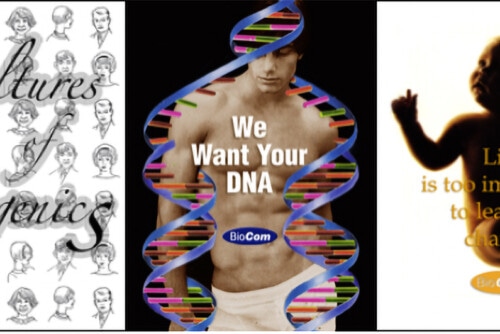III. Performing Motherhood
ID: 바다사랑 (love for sea)
Date: 2002.02.15 20:06
Subject: My dear son, Moon Hyunook
Hyunook Ah, How have you been doing? I, a mother, whenever I miss my child, or want to see him, I come here. Because this is where you are. I just finished work and here I am . . . I have to work overtime for the next three days. But I will come and see you here. I love you. You are more precious than my life.
Each woman entering “The Sad Love Story” community is asked to choose her own screen name. Often, she chooses a nickname associated with the baby, such as the baby’s date of birth (DOB) or the baby’s intended name. Many names1 embody a woman’s sadness, guilt, shame and love towards her baby: 나쁜 엄마 (bad mother); 슬픈엄마 (sad mother); 슬픈 나 (sad self); 민영엄마 (Minyoung’s mommy); 부끄러운 엄마 (shameful mommy); 해솔아 미안해 (I am sorry, Haesol); 호석사랑 (love for Hosuk); 진성사랑 (love for Jinsung); 보이지 않는 사랑 (unseen love); 너무 늦어버렸어 (it is too late); 가슴에 풀리지 않는 멍울 (a smoldering knot in her chest).
In “Unsent Letters,” women ask their babies about their health; they tell them not to cry too hard, to eat and sleep well. The somewhat banal imaginings about their babies’ post-adoption, everyday lives are often flooded with undiluted, excessive feelings of guilt, shame, regret, sadness, pain, loss, anxiety, ambivalence, and restlessness, as well as explosive anger toward: society; the unplanned pregnancy; the birthfather; the mother herself; and the baby.
These postings read as the birthmothers’ simultaneous attempts to remember and to forget, to connect with and to disconnect from her baby. Drawing upon Freud’s theory of melancholia, one sees how traumas surrounding both the lost child and the loss of a maternal role prevent birthmothers from mourning. Instead, they fall into the melancholic’s tendency to impoverish the ego through self-denigration and resentment, as displayed in the following accounts:
ID: BYORI
Date: 2002.07.27 02:45
Subject: My dearest son
I miss you so much. No one would know how much I miss you. I would like to die, but because of you, my son, I can’t even contain the thought. I know it is stupid. But I don’t think people outside the world welcome me. So . . . I am living with a heavy sense of guilt. Even if I smile, it is not a real smile. No one understands. (SIGH). I wish the wind would blow me away and take me to my son, Byori . . . Then, I could kneel down in front of him and apologize for my wrongdoing. Can we go back in time?
Another posting reads:
ID: 12월09일 (December 9th)
Date: 2005.07.19 23:26
Subject: My baby
My lovely baby
I miss you so much that I might go crazy
My heart feels like exploding
I would rather go crazy; then I wouldn’t have any memory of you
I wish I had no thought of you
Tears come along whenever I think of you several times a day
My heart aches
In the first, the birthmother’s unfulfilled mothering drives her to thoughts of suicide, yet, it’s the very idea that she is a mother that keeps her alive. In the second, the birthmother invites amnesia to overcome her emotional devastation. The women yearn to be free from their children as much as they want to keep (or be reunited with) them.
The child’s birthday is, not surprisingly, a day marked by particularly keen ambivalence. The following string of posts—a virtual birthday party for an absent baby, as it were—offers a moving account of how these women are communally consumed by loss and, at the same time, provide each other (perhaps the only) comfort for that grief.
ID: 진짜푸우 (Real Pooh)
Date: 2002.01.29 13:03
Today is the third birthday of my son, SeHoon. Please let’s celebrate! Until last year, I was devastated and drank a lot. I have decided not to do that again. My SeHoon, born to a difficult situation. However, I believe, he is living happily with adoptive parents now . . . Please congratulate!
Reply 1.
ID: 재원
Date: 2002.01.30 00:46
I am happy for your son’s third birthday. My baby is almost three too. I can’t even imagine how much she must have grown by now. I hope to see you at some point in person. Congratulations again!
Reply 2.
ID: 벼리
Date 2002.01.29 18:22
CONGRATULATIONS! I am sure he is growing bright and happy like snow outside. I hope you are doing well. Cheers, someday you will be able to see your son, SeHoon.
Reply 3.
ID: 바다사랑
Date: 2002. 01.30 20:37
Sorry for a belated congratulation. It’s been already three years? Dear SeHoon, Happy birthday to you. [three smiley faces] I hope you grow healthy and brave.
Via the Internet, these mothers build a collective sense of mothering. They circulate the social and emotional quality of conventional motherhood: the anxieties and worries, the celebration and pride. Through these flickering distributions, they reclaim the psychic and the corporeal identity of motherhood in the global spacelessness of a virtual community.
- Some adopt random nouns—e.g. 닉네임 (id)—or a string of English characters with no concrete meaning in English. Often those jumbled strings of English characters are decoded into a Korean name or another significant word when the computer keyboard shifts to Korean character sets. For example, “gywjd” becomes (hyojung; 효정) in Korean character sets. This is a site of deterritorializing English character from its own signification; it creates a Korean name with an easy shift-key of a different language set, while maintaining facile anonymity of the participant. [↩]




